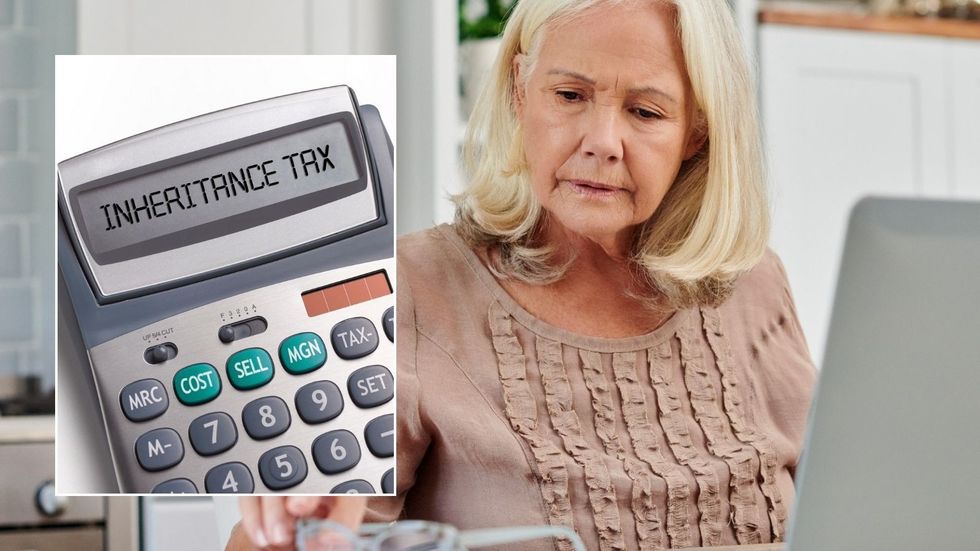Financial gifts could surge this Christmas as older relatives grapple with new inheritance tax rules announced in the recent Budget.
The push towards financial gifting comes as families face tighter inheritance tax rules in the coming years.
Ian Dyall, Head of Estate Planning at Evelyn Partners said: “Helping out loved ones and seeing them enjoy greater financial security can bring a lot of joy and satisfaction to all concerned, at any time of year.
“Sharing wealth and supporting relatives financially has become more of a priority as demands have mounted on the budgets of students, young families and even middle-aged adult children.
“Another reason financial gifts could be top of the list for some families this Christmas, and in the coming years, is that older savers are looking to pass on more wealth before they die.”
Chancellor Rachel Reeves announced that from April 2027:
- Defined contribution pension pots will be included in inheritance tax calculations,
- Nil rate bands will stay frozen until April 2030,
- Changes to agricultural and business property relief will limit the tax-free threshold to the first £1m of combined assets

The Office of Budget Responsibility predicts these changes will impact an additional 1.5 per cent of UK deaths
GETTY
The Office of Budget Responsibility predicts these changes will impact an additional 1.5 per cent of UK deaths, affecting 10,500 out of 213,000 estates with inheritable pension wealth in 2027-28.
A further 38,500 estates will face an average £34,000 in additional inheritance tax due to pension assets being included in estate valuations.
“IHT will only apply to assets if the estate is not covered by available nil-rate bands and other reliefs,” explains Dyall, emphasising the importance of understanding personal exemptions before making financial decisions.
Tax-free allowances
Families looking to make financial gifts this Christmas can take advantage of several tax-free allowances. Individuals can give away up to £3,000 per tax year – or £6,000 for couples – without inheritance tax implications.
Any unused allowance from the previous tax year can be carried forward, potentially allowing gifts of up to £6,000 per person or £12,000 for couples this festive season. Small gifts of up to £250 can be given to any number of people tax-free, provided no individual receives more than £250 in total.
Special allowances exist for weddings and civil partnerships, with parents able to give £5,000, grandparents £2,500, and others up to £1,000.
Gifts between spouses and civil partners are completely free from inheritance tax.
Regular gifting from surplus income
Regular gifting from surplus income can offer another tax-efficient route for Christmas generosity.
Dyall explains: “Regular gifts made by people with more income than they need may benefit from the normal expenditure from income exemption.”
This approach is particularly suitable for those wanting to make ongoing contributions to younger relatives’ savings or investments. However, the gifts must be regular, come from income rather than capital, and not affect the donor’s standard of living.
He said: “This will not help if you only intend to make a one-off gift, but for those who are accumulating savings from excess income, gifting some each Christmas can be a tax-efficient way of helping younger family members.”
Gifting excess pensions cash
Another tax-efficient option is funding a pension for a loved one, with contributions up to £2,880 annually being topped up to £3,600 through Government tax relief.
Dyall explained care should be taken when withdrawing from pension pots, as higher tax rates could offset potential inheritance tax savings.
Seven-year rule and potentially exempt transfers
Larger financial gifts can be made under the seven-year rule, leaving the estate tax-free if the donor survives for seven years.
The expert said: “Generally, the best time to gift if you can afford it is now. The earlier you gift, the more chance there is of that gift becoming fully exempt.”
The use of trusts and bare trust vs JISA
For those hesitant to give away substantial wealth, trusts offer a practical solution.
Discretionary trusts can protect assets up to £325,000 without triggering immediate inheritance tax liability, while controlling when beneficiaries receive payments.
Bare trusts present another option, particularly useful for grandparents investing for grandchildren.
Dyall said: “When investing for minor beneficiaries, the natural instinct is to use tax-beneficial wrappers such as a Junior ISA, but these are limited in size and can’t be accessed before age 18, even for the child’s benefit.”
Bare trusts offer more flexibility, allowing unlimited investments and access before age 18 if needed for the child’s benefit.